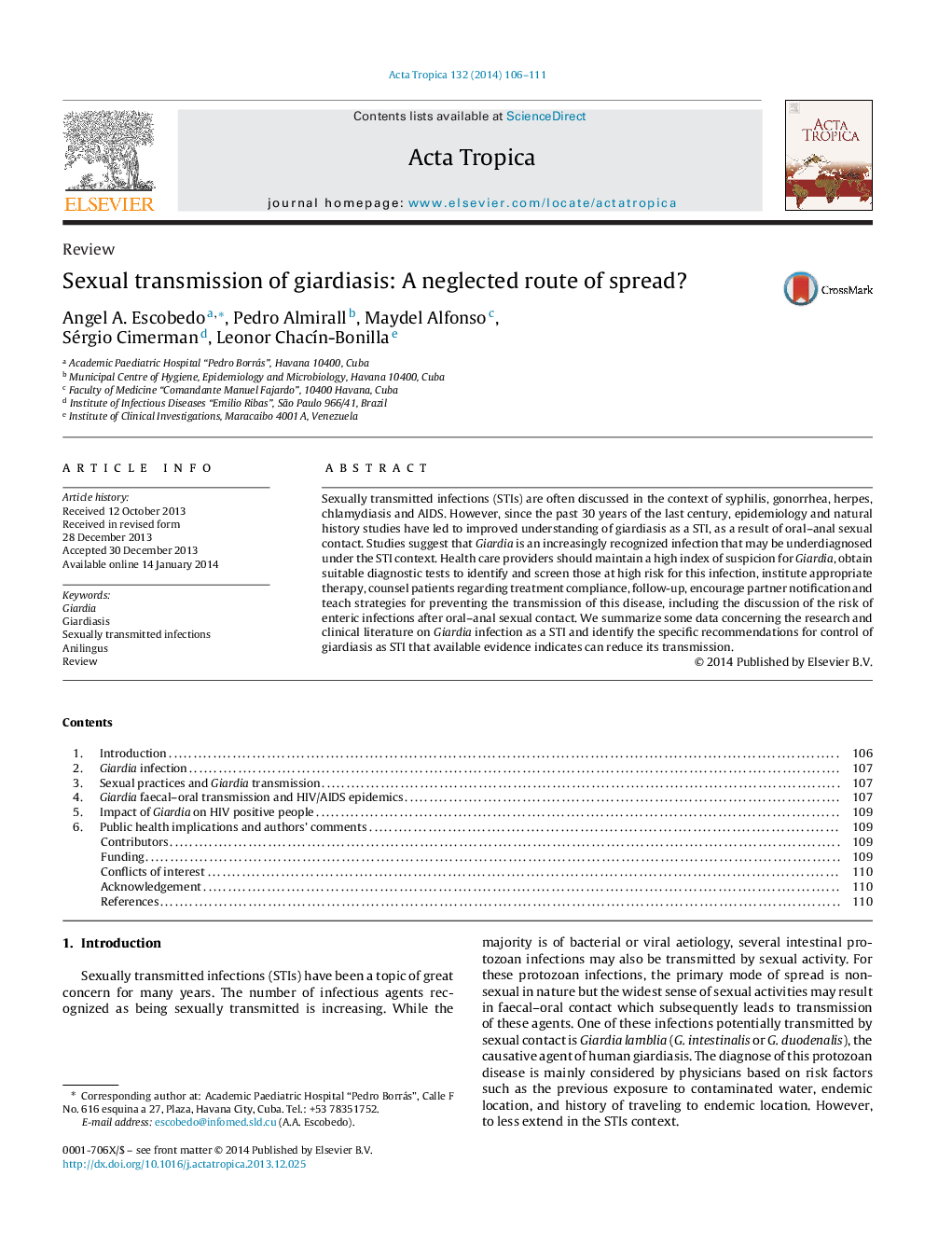| Article ID | Journal | Published Year | Pages | File Type |
|---|---|---|---|---|
| 3393805 | Acta Tropica | 2014 | 6 Pages |
•Giardia may be transmitted by oral–anal sexual practices.•It may be underdiagnosed under the STD context.•Awareness about this form of transmission may increase.•Efforts on the part of the health authorities and people at risk need to be done.
Sexually transmitted infections (STIs) are often discussed in the context of syphilis, gonorrhea, herpes, chlamydiasis and AIDS. However, since the past 30 years of the last century, epidemiology and natural history studies have led to improved understanding of giardiasis as a STI, as a result of oral–anal sexual contact. Studies suggest that Giardia is an increasingly recognized infection that may be underdiagnosed under the STI context. Health care providers should maintain a high index of suspicion for Giardia, obtain suitable diagnostic tests to identify and screen those at high risk for this infection, institute appropriate therapy, counsel patients regarding treatment compliance, follow-up, encourage partner notification and teach strategies for preventing the transmission of this disease, including the discussion of the risk of enteric infections after oral–anal sexual contact. We summarize some data concerning the research and clinical literature on Giardia infection as a STI and identify the specific recommendations for control of giardiasis as STI that available evidence indicates can reduce its transmission.
Graphical abstractStudies suggest that Giardia is an increasingly recognized infection that may be underdiagnosed under the STD context.Figure optionsDownload full-size imageDownload as PowerPoint slide
